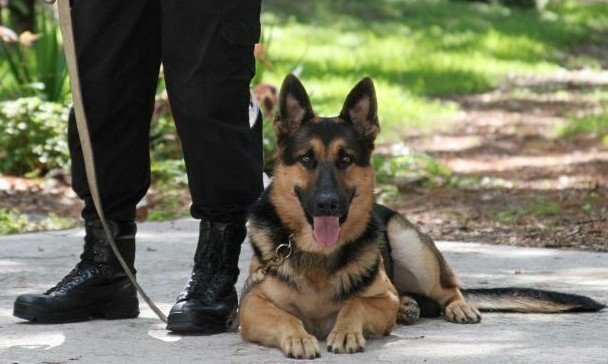Dogs trained to sniff out illegal drugs are most likely to make mistakes during real-life searches of vehicles, according to a study in Forensic Science International.
Researchers in Poland and the United States tested groups of police dogs for the accuracy of their drug-detecting skills. They were tested against weed, hash, speed, cocaine and heroin, all in different settings.
The dogs picked out the drugs most accurately when they were placed in individual rooms. If a dog had sniffed the room before, the rate of false alerts dropped to 10 percent.
But in situations designed to reflect real-life settings, the dogs did much worse. This correlates with what civil rights advocates have said about police dogs for many years.
When the dogs were told to sniff the perimeter of vehicles, they accurately pointed out planted contraband just 64 percent of the time. They failed to find illicit drugs 15 percent of the time, and they falsely pointed to drugs that weren’t there 22 percent of the time
Once dogs got inside the vehicles, their success rates dropped even further. Forty-two percent of the time they failed to detect contraband, and 36 percent of the time they gave false alerts to contraband that wasn’t there.
Other studies have found similar problems with drug-sniffing dogs, despite their widespread reputation for infallibility. Four years ago, scientists in California reported that whether a drug dog reports an illicit substance is heavily influenced by whether the dog’s handler believes an illicit substance is present – so much so that drug – and bomb-sniffing dogs showed an 85 percent failure rate.
And an Australian study from the same year found 80 percent of alerts from drug dogs were false positives.
Police departments in various parts of the United States have been accused of creating “trick ponies” by training dogs to signal drugs when they receive cues from their handlers rather than when they smell it. This allows cops to search homes, automobiles and persons in violation of the U.S. Constitution.


Nonetheless, the legal system continues to treat drug dogs as reliable sources of evidence. In 2005, the U.S. Supreme Court ruled that alerts from these dogs are sufficient probable cause.
That means that if a drug dog tells police you have weed in your car – even if the dog is wrong and you don’t – police then have the legal right to search your car. This is a special problem in many areas, since drug dogs are often more than unreliable – they’re poorly trained or have no particular drug detection skills of any kind.













